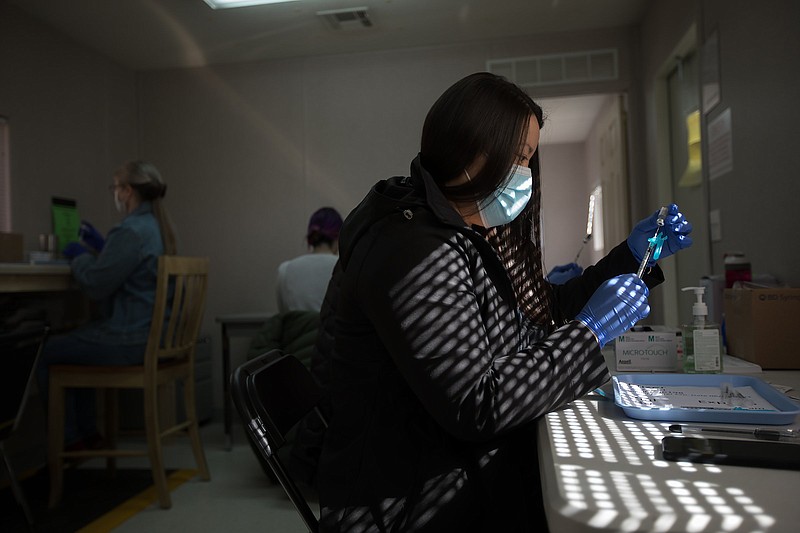The city of Chattanooga and Hamilton County will end their joint COVID-19 Task Force next week, a year after the group was formed, though local leaders say residents must remain vigilant as some local data points begin to show a concerning trend.
Rae Bond, chair of the task force, said efforts with education, community mobilization and data will continue but the formal task force will stop meeting to give the next Chattanooga mayor the opportunity to respond to the pandemic in the way he or she sees fit. The runoff election for mayor between Kim White and Tim Kelly is April 13.
Bond cautioned the public against thinking the pandemic is over or that they should not follow social distancing and other public health guidelines, such as wearing masks, because the task force is ending. The local data committee and the community mobilization committee will continue to meet to discuss local needs in responding to the pandemic, she said.
"Conditions are generally improving but this public health emergency is by no means over," Bond said. "We look forward to continuing our important work individually and collectively."
The 22-person task force formed on March 31, 2020, when the pandemic first hit Hamilton County. Its members included local doctors, nonprofit leaders and education leaders. The group focused on various needs in the past year, including data collection, education and surge management. The task force served in an advisory role to local leaders and did not have the ability to change policy.
In the past week, the number of hospitalizations in Hamilton County has increased from a nearly nine-month low. The number of people in the intensive care unit has increased as well. Bond said the slow uptick in numbers is concerning because many of those hospitalized with the virus would otherwise be eligible for a COVID-19 vaccine.
Dr. Lisa Piercey, commissioner of the Tennessee Department of Health, said vaccine hesitancy, particularly among rural conservatives, is hurting Tennessee's national standing in administering doses. Piercey said during a Monday news conference that the slow rollout in parts of the state led to the state opening the vaccine to all residents ages 16 and older by April 5.
Bond said the local mobilization workgroup is seeking to address hesitancy among certain populations but, overall, hesitancy is something that needs more discussion.
"There has been an increase in vaccine hesitancy overall, even before COVID, but it comes in stark relief when you see the profound impact that COVID has had on individual health, the health of our community, our economy and the health and safety of people in general," Bond said. "We're really hoping that through concerted efforts around messaging we can really encourage people to move forward."
There were 64 people hospitalized with COVID-19 on Tuesday, according to the Hamilton County Health Department. Since the pandemic began 472 Hamilton County residents have died from the virus.
Contact Wyatt Massey at wmassey@timesfreepress.com or 423-757-6249. Follow him on Twitter @news4mass.
